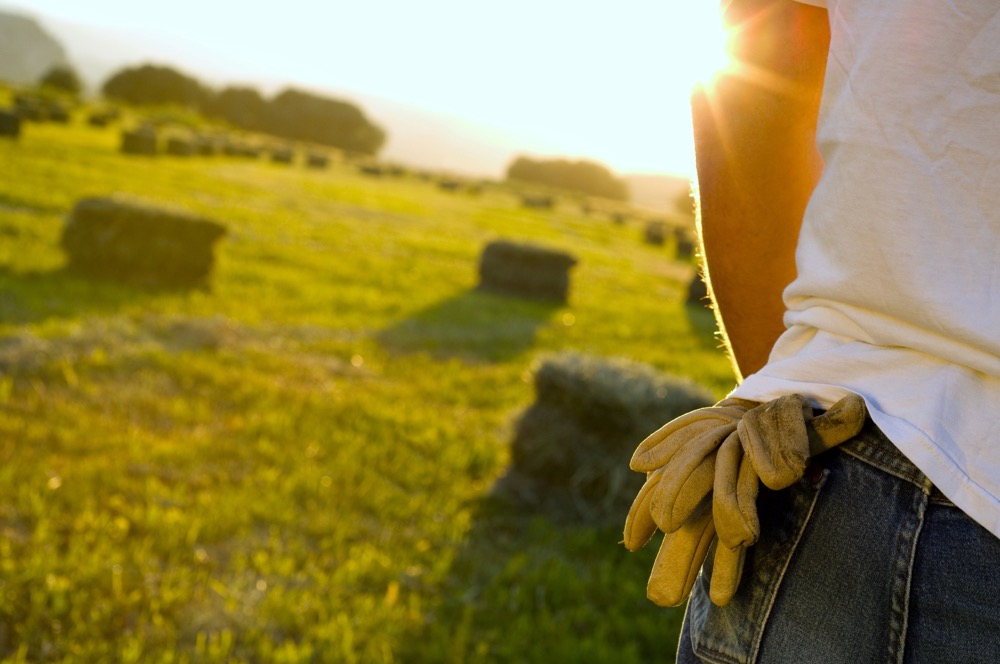Too many of us spend our days frustrated because there is so much to do and so little time to do it in. That frustration can even make us impatient to the point where we dismiss the advice of time-management experts, and we say, ironically, “I just don’t have time to get better at using time.”
Yet those time experts might be just the people we need to make time for.
So, while it sounds simplistic to say that time is fixed and that all we can control is how we use it, it is one of the most important tenets of farm management.
Read Also

‘No agenda, no attenda’: How to professionalize your family farm meetings
Establishing meeting ground rules can help a farm family find ways to communicate that work for the business and the family.
“It’s about self-management,” says Craig Ryan, an organizational change facilitator in Bowmanville, Ont., who also teaches professional development courses on time management at the University of Waterloo.
“Our habits determine what we get done,” says Ryan, who helps his clients identify poor time-management practices and replace them with best-practice habits. “We need to be willing to change,” says Ryan. “If you keep doing what you’re doing, you’ll keep getting the same results.”
 Laura Vanderkam, author of the book, 168 Hours: You have more time than you think, says the first step to spending your time better is to know how you’re spending it now. “Keep track of your time for a week,” Vanderkam advises. “You’ll discover new things about your life, what takes too much of your time, and where there may be space for squeezing in more fun.”
Laura Vanderkam, author of the book, 168 Hours: You have more time than you think, says the first step to spending your time better is to know how you’re spending it now. “Keep track of your time for a week,” Vanderkam advises. “You’ll discover new things about your life, what takes too much of your time, and where there may be space for squeezing in more fun.”
Goal setting for both our personal and work lives is one of the foundational good habits we want to adopt, says Ryan. “You want to be proactive with your time management, and not just be reacting to things,” he explains. “By setting clear and compelling goals, we create a road map for our lives.”
One reason people feel that work has taken over their lives is because they don’t take the time to set goals for their personal lives. These goals must be specific and measurable, advises Ryan. It’s not enough to say, “I want to spend more time with my family” or “someday I want to go to Europe.”
Ryan advises posting these goals where you will see them every day. In other words, write them down, and then stick them up in a prominent location on the refrigerator or other message board. And then, don’t let them get covered up. The key is keep them in your sight so they can motivate you to achieve what you want to achieve.
The next step is to work backwards from long-term goals to near-term goals, planning and scheduling the steps that need to happen along the way. “What gets planned and scheduled gets done,” Ryan asserts. Such planning keeps the urgent but less important stuff from knocking the important stuff off our to-do lists.
Both Vanderkam and Ryan recommend making a plan for your next day. Vanderkam suggests identifying three to five priorities for the following day while Ryan tends towards making a specific schedule for each hour of the day, so you will you take that kind of control of your time.
Advance planning allows you to hit the ground running each day and not waste time trying to figure out what you should be working on.
Then, at the end of the week, Ryan likes to make a plan for the following week. “There will have to be some flexibility to allow for changes,” he says.
Activities that require the most focus should be scheduled for your peak productivity times, says Ryan. Save mundane jobs such as answering emails for off-peak times which are usually later in the day for most people.
Vanderkam and Ryan also recommend using bits of time wisely. Don’t fall into the trap of using your odd gaps of as little as 10 or 15 minutes for email or social media, says Vanderkam. Instead she suggests having a list of things you can do that will bring you joy, such as looking at photos, doing stretching exercises or texting a loved one.
Ryan agrees, and recommends keeping a list of smaller jobs such as making phone calls that can be done when you have a gap in your schedule.
Vanderkam also recommends having a plan for your downtime. Too many people waste more time than they realize watching TV, surfing the Internet or running errands, she explains. That time could be better used enjoying a hobby or spending time with a spouse.
“Knowing what you’d like to do with your time increases the chances that fun and meaningful things will happen,” says Vanderkam.
Learning to say no to things that don’t further your goals is another way to make better use of your time. Ask yourself if your volunteer commitments match your goals. It’s important not to be pressured into doing things by other people. “You have to live your own life,” says Vanderkam.
Meetings can also be time wasters if they are not well run. “Make sure you have an agenda and stick to it,” says Vanderkam.
You’ll be more productive if you take regular breaks, adds Vanderkam. “I don’t mean checking email or social media. Instead go outside and take a walk to disconnect and recharge,” she says.
Another important step in using time more effectively is to identify the problems that keep us from getting our work done. Then problem solve for solutions.
Ryan sees many clients who struggle with procrastination. Unfortunately, if you have things you know you should be doing but are not getting done it tends to weigh heavily on you, leading to a lot of stress, he says. Ryan recommends tackling the problem by analyzing the situation first. What is stopping you from getting it done? Is it unpleasant? Are you afraid of the consequences?
For many people, the solution to procrastination is about taking the first step, says Ryan. Once you get started, momentum will keep you going.
If that’s not the answer, then look for creative solutions. Will scheduling a time to do it help? Will it make it easier if you reward yourself for getting it done? Can you give the job to someone else who would like that job?
Distractions are another stumbling block for many people. Having specific goals will help keep you on track, but here are other suggestions for dealing with interruptions.
One option might be to schedule time in your day when you are available to be approached, suggests Ryan. This minimizes interruptions and leaves blocks of time for focusing on work that requires your attention.
And forget about multi-tasking, says Ryan. Research has shown it doesn’t work. Trying to do two things at once or jumping back and forth between tasks is not effective, he says. “It’s better to focus on one thing at a time.”
Some people find they get a lot done by starting an hour before everyone else, says Vanderkam. Or you can use the early morning for a fitness workout instead, she adds. Many of us think we are not morning people but the truth is we are staying up too late doing things that don’t matter to us, she says. “Turn the TV off, turn in, and turn unproductive evening hours into productive morning ones.”
What does it take to make these good practices into habits? Good practices become habits when they are done repeatedly and when you decide you really want to do them, says Vanderkam. The reward of accomplishing your goals will motivate you to continue, she says.
But it all starts with being clear on what we want to accomplish, both for work and in our personal lives. “If we are clear on what we want to accomplish, it drives the other things,” says Ryan. “We will find a way.”
















